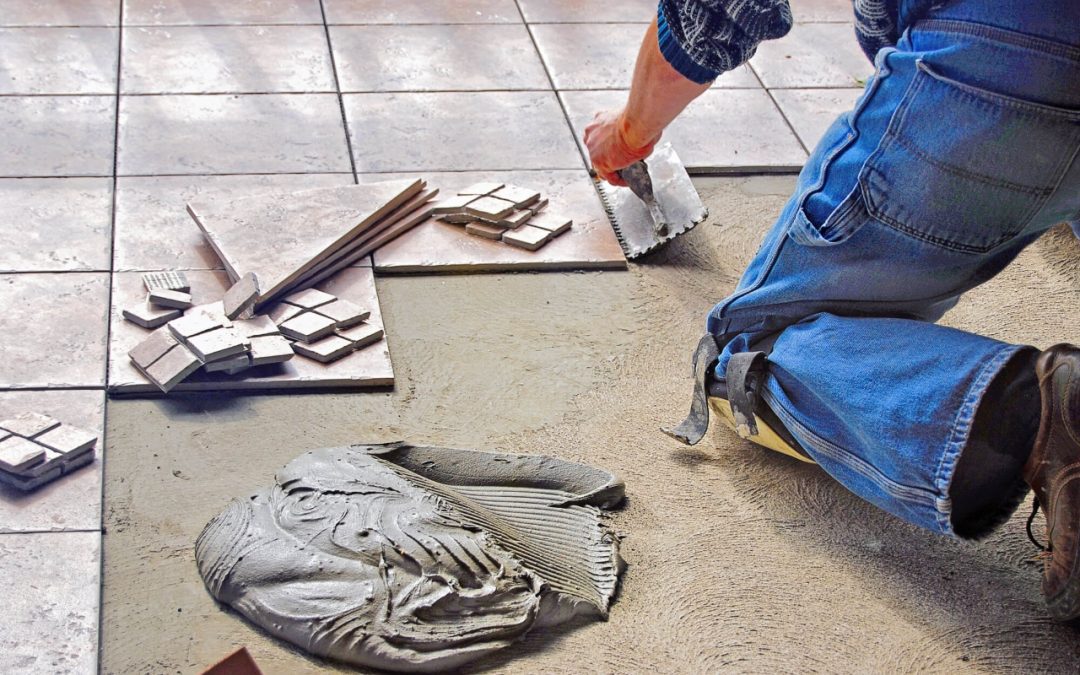Replacing your flooring is an excellent way to upgrade your house and boost property value. The floor is the most expansive surface in your home, so replacing it will instantly transform the living spaces. Deciding to install a new floor isn’t a straightforward choice. There are numerous types of flooring materials on the market and each has its unique benefits. Here are seven flooring materials to consider for your home renovation.
Common Types of Flooring Materials
Tile Flooring
Tile flooring is a beautiful choice for areas that are prone to moisture, like bathrooms and laundry rooms. It comes in various options, but ceramic and porcelain are the most popular options. Tile can be installed as a DIY project, however, a professional will do a better job with the installation.
Pros
- water-resistant and excellent for moisture-prone areas
- durable
- available in various styles and colors
Cons
- expensive compared to other flooring materials
- time-consuming to install
- cold and uncomfortable underfoot
- may develop scratches in high traffic areas
Types of Hardwood Flooring Materials
Hardwood flooring is popular among homeowners because of its classic, elegant appearance. Some of the most popular varieties include oak, cherry, and walnut. Hardwood flooring complements any style of décor.
Pros
- visually appealing
- durable if maintained
- enhances home value
- can be refinished
- suitable for living rooms and bedrooms
Cons
- expensive compared to other flooring materials
- susceptible to water damage
- may develop blemishes, especially in high traffic areas
- not suitable for kitchens, bathrooms, laundry rooms, and basements
Engineered Wood
Engineered wood is an excellent flooring option if you’re looking for a hardwood-like appearance but without the hefty price tag. This type of flooring mimics the look of hardwood but isn’t as durable.
Pros
- cheaper alternative to hardwood
- easy to install
- better water resistance than hardwood
- unlikely to warp due to changes in temperature or humidity
Cons
- can’t be refinished
- prone to fading
- substantial variation in quality
Vinyl
Vinyl flooring is versatile and can be used in most areas. While it used to be considered unappealing, today it’s available in stylish designs that mimic wood, tile, and stone.
Pros
- cost-effective
- simple to install
- water-resistant
- many options available
- easy to maintain
- suitable for kitchens, bathrooms, basements, and laundry rooms
Cons
- some vinyl types are pricey
- less attractive than other flooring materials
Laminate Types of Flooring Materials
Laminate is a cost-effective flooring option. It consists of a high-density fiberboard covered by a photographic image of wood or tile, which is sealed below a transparent plastic scratch-resistant layer.
Pros
- less expensive than wood or tile
- easy to maintain
- simple to install
- available in various designs and colors
- durable
Cons
- susceptible to water damage
- can be noisy if improperly installed
Carpet
Carpet is cost-effective and comfortable, making it popular among homeowners. It’s also a favorite because it’s available in various colors, styles, and textures.
Pros
- comfortable underfoot
- good for reducing noise in the home
- stain-resistant options are available
Cons
- requires regular cleaning
- not suited to moisture-prone areas
- not the best choice in homes with pets or with people who have allergies
Types of Flooring Materials: Bamboo
Bamboo has become popular in recent yeasrs because it’s attractive, durable, and environmentally friendly.
Pros
- easy to maintain
- stain and water-resistant
- attractive wood-like appearance
- a better option for kitchens than wood flooring
Cons
- prone to scratches in high traffic areas
- humid weather may cause warping
Before choosing a flooring material, consider important factors like durability, ease of installation, water resistance, and your budget. The options above aren’t all of the flooring materials available, but they are excellent choices that are popular with homeowners.
Exceptional Engineering Home Inspections offers inspection to customers in Maricopa County, Arizona. Contact us to request an appointment.

